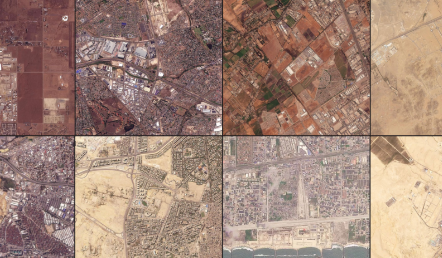A new Bloomberg report has revealed that the rapid expansion of artificial intelligence (AI) data centres is straining the world’s water resources. This challenge is also spreading to developing regions, including parts of Africa.
According to the report, almost two-thirds of data centres built or under development since 2022 are located in areas already suffering from severe water stress.
These facilities, essential for powering AI tools such as chatbots, image generators, and machine learning models, rely heavily on water to cool servers and generate electricity needed to run their vast operations.
AI growth deepens competition for clean water
Bloomberg found that five U.S. states account for 72% of newly built or planned data centres in water-scarce regions. The report warns that tech giants such as Microsoft, Google, Amazon, and OpenAI’s race to expand AI infrastructure is intensifying competition for clean water between industries and communities already battling shortages.
“Water is often the last consideration when making siting decisions for data centres because it’s cheap compared to the cost of real estate and power,” said Sharlene Leurig, managing member of U.S.-based Fluid Advisors. “Water has traditionally been far less consequential for industrial users than energy costs and availability.”
Researchers estimate that a 1-megawatt data centre requires up to 25.5 million litres of water annually for cooling, equivalent to the daily needs of a small town.
On a global scale, the International Energy Agency (IEA) projects that data centres consume about 560 billion litres of water annually, a figure expected to double to 1,200 billion litres by 2030 as AI adoption accelerates.
In the United States, a 100-megawatt data centre consumes roughly 2 million litres of water daily, or about as much as 6,500 households combined. In the past three years, more than 160 new AI data centres have been built in high-stress regions.
Hydrologist Amy Bush of RMBJ Geo Inc., based in Abilene, Texas — where OpenAI is developing a massive 1.2-gigawatt data centre for its $100 billion “Stargate” AI project — warned, “Every part of the state is facing this water-energy nexus crisis.”
Similar tensions are being seen globally. Communities in the Netherlands, Uruguay, and Chile have protested tech companies’ water usage. Chile’s government temporarily revoked Google’s permit for a $200 million data centre following public outcry.
Many African data centres rely on fresh water
While the research focused primarily on the United States, similar patterns emerge in Africa.
New data centres are being built across cities like Lagos, Nairobi, and Johannesburg to serve Africa’s growing tech and AI sectors. However, these developments come when much of Africa faces severe water stress, prolonged droughts, and ageing water systems that lose significant amounts of water through leakage.
Many African facilities use fresh or potable water to cool servers because untreated water can corrode equipment. This puts additional pressure on municipal systems in water-scarce nations such as South Africa, Ethiopia, and Namibia.
Despite this, some studies indicate that Africa’s overall AI water footprint remains lower than the global average. This is mainly because several African countries rely on energy sources with lower water intensity.
Still, regions like the Congo Basin and East African highlands, which experience hotter climates and use water-intensive power sources, are recording higher water use per AI task.
Also, in some parts of Africa, much of the “water cost” comes not from data centres but from infrastructure inefficiencies, such as leakage from old pipes and poor water management.
That means digital growth could exacerbate existing weaknesses unless governments simultaneously invest in digital and water infrastructure.











